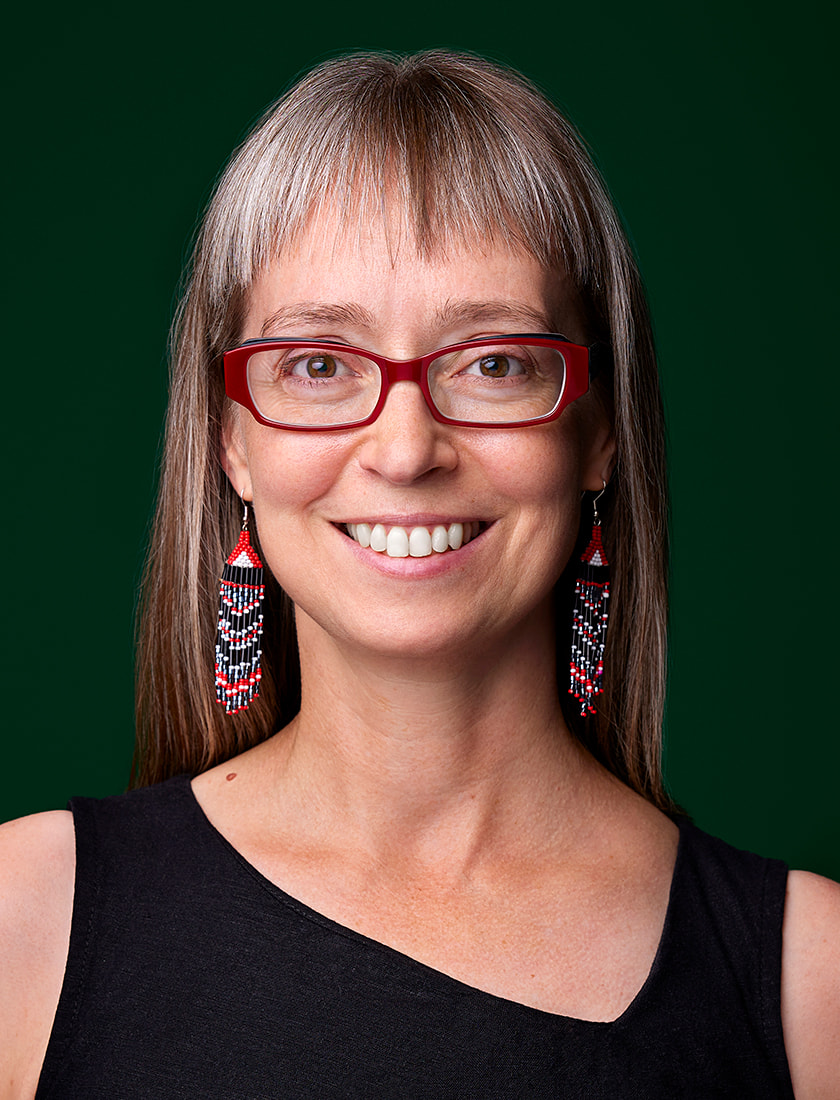Growing up, Deena Hinshaw, ’97 BSc, ’04 MD, ’08 MPH, spent summers working at her grandparents’ health food store, where she became intrigued by the possibilities of preventing illness rather than treating it.
With a science degree from Augustana University College (now Augustana Campus at the U of A) and a curiosity about alternative medicine, Hinshaw toyed with becoming a naturopath with training in western medicine. With this career plan, Hinshaw took the medical college admission test, applied to medical school and, to her surprise, was accepted.
Public health wasn’t on her radar until she stumbled on a posting for a rural residency in community health. “I was like, ‘What? I didn’t even know this existed. This is what I was born to do!’ ” she says with a laugh. Hinshaw’s path was set: a career in public health, with its focus on illness prevention and the potential to make an impact. She earned her master’s in public health at the U of A and was hired by Alberta Health Services in 2010. In 2019, she became Alberta’s chief medical officer of health.
One year later, SARS-CoV-2 arrived.
“Dr. Hinshaw accepted the responsibility she had in her role to protect public health and the health-care system even though she knew that it would draw personal criticism.”
Jason Acker, U of A associate vice-president, Research Integrity Support
All of us, each of us
COVID-19 put the often-unnoticed discipline of public health in the spotlight. But as doctors like Hinshaw became the face of social restrictions and mandated measures, some people began to equate public health with an infringement of individual rights. “We’re literally interconnected, we can’t escape that fact, and yet how we live our lives day-to-day, we don’t think that way,” Hinshaw says. “One of the challenges we have now is articulating the everyday, post-pandemic value and benefit that public health brings to everyone.”
All for one, one for all
Like athletes preparing for the Olympics, public health doctors were trained for the eventuality of a pandemic. But nothing prepared them for COVID-19’s scope, scale, duration and very high stakes. “If you’re a ski racer … you’re only competing for this tiny little stretch of time with that intense pressure on you,” she says. “We in public health were bringing our skills and experience to bear, with that intense pressure and scrutiny, for years. Literally, every single day.” Hinshaw praises her team for its tireless behind-the-scenes efforts. There are echoes of the COVID-19 mantra — “We’re all in this together” — as she acknowledges individuals from all sectors of society who chose to act for the collective good. “Whenever people stepped up and did the best they could for their communities, for the people around them — it mattered.”
Miscellanea
Country kid
Hinshaw’s “rural adjacent” childhood in Sylvan Lake, Alta., involved chores with the chickens and cows, followed by football, baseball or hockey with her siblings and cousins. “Sometimes it feels like I grew up in another generation.”
Broad horizons
The Augustana campus appealed to Hinshaw with its small community and, at the time, its Lutheran roots. But the big draw? A development studies program that offered a semester abroad.
Mountains to move
Hinshaw was on Augustana’s canoeing and cross-country ski teams. These days she’s particularly pleased to have learned to downhill ski, a sport her kids love. “It was definitely beyond my comfort zone.”
Looking back
Throughout the pandemic, Hinshaw was agonizingly aware of the repercussions of each decision made. “Every single person who lived through COVID lost something in some way,” she says. “All of us will be processing what happened for a long time.”
Looking ahead
“What I hope we learned from COVID is that we need to talk to each other, that we need respectful dialogue across differences,” she says. “But I think it’s too soon to say if we’ll learn that lesson in a way that will help us be ready for what comes next.”

We at New Trail welcome your comments. Robust debate and criticism are encouraged, provided it is respectful. We reserve the right to reject comments, images or links that attack ethnicity, nationality, religion, gender or sexual orientation; that include offensive language, threats, spam; are fraudulent or defamatory; infringe on copyright or trademarks; and that just generally aren’t very nice. Discussion is monitored and violation of these guidelines will result in comments being disabled.